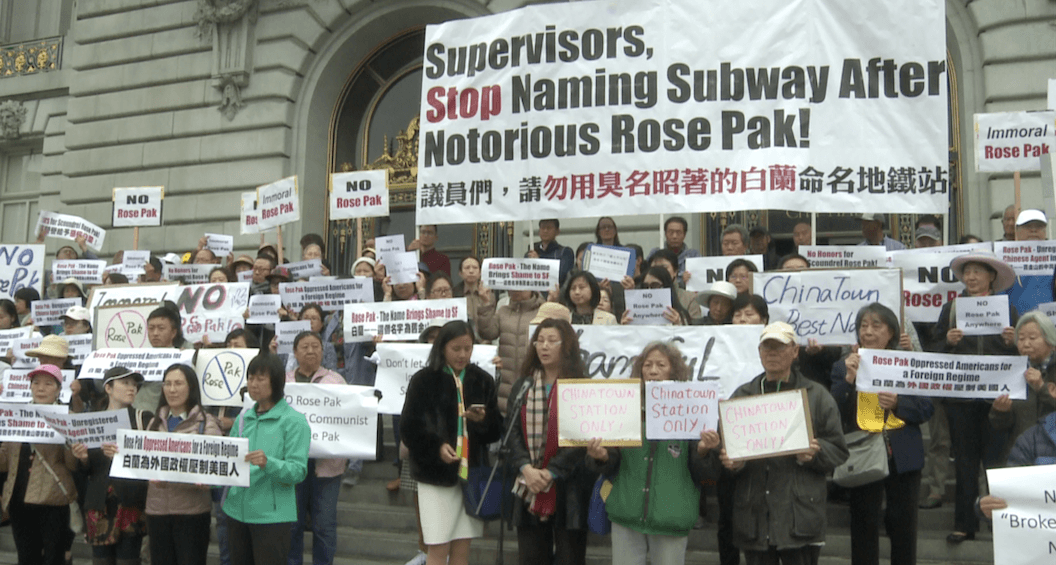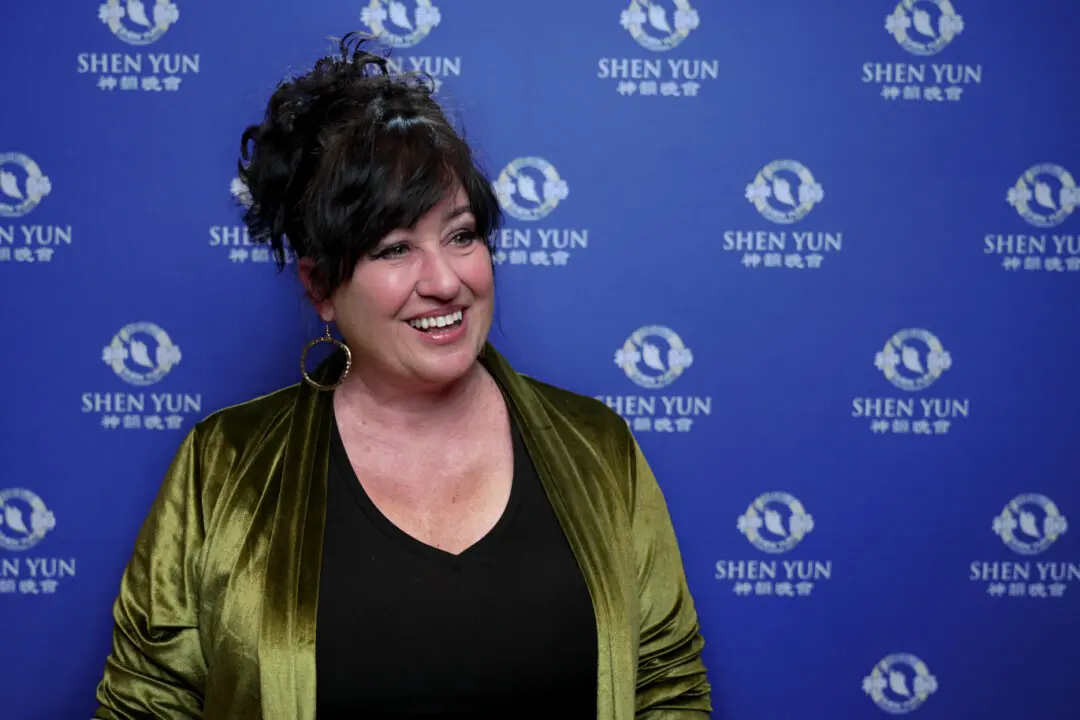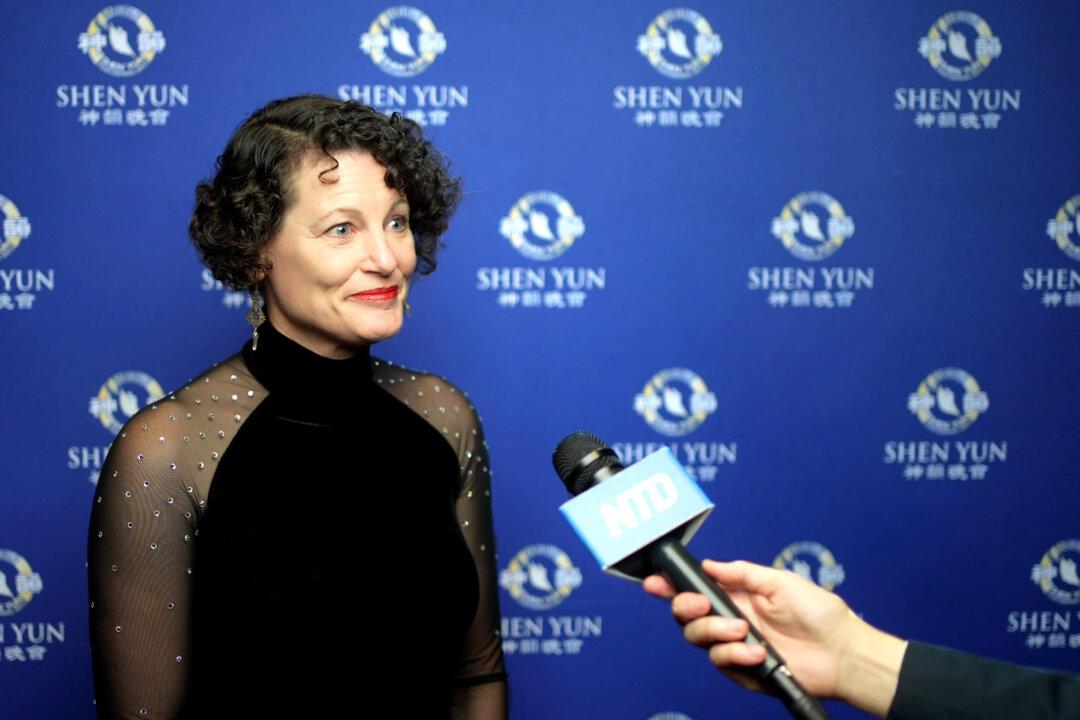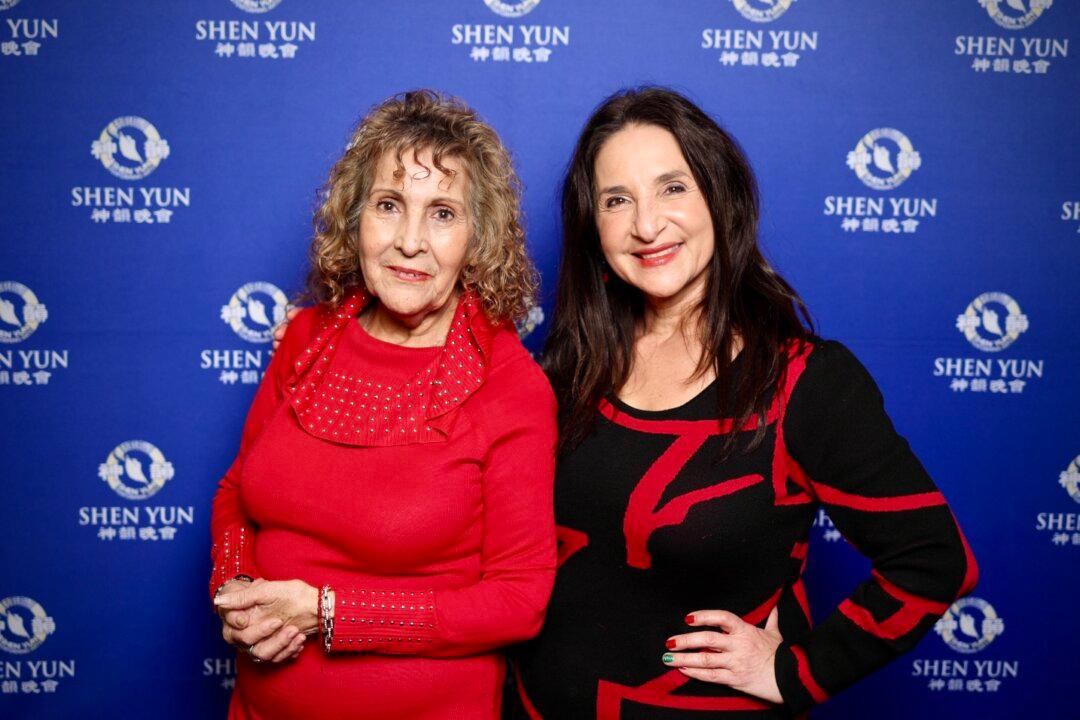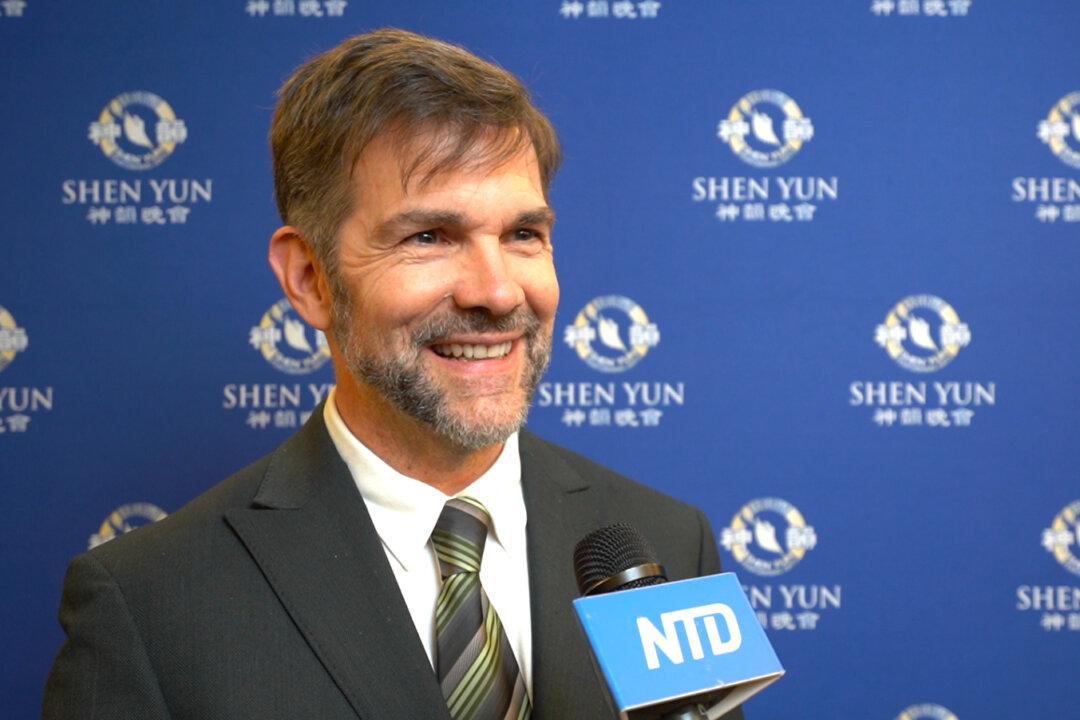SAN FRANCISCO, Calif.—Over the past few months, San Francisco residents and non-residents have gathered in the city to protest a proposed name for the new Chinatown subway station.
The San Francisco Board of Supervisors voted in June to name the station after the late political power broker Rose Pak. The protesters have expressed concern that Pak was known for corruption and had deep ties with overseas government affairs.
